Words and photographs by Stefanie Glinski in Kabul
In a war that has been raging for decades, a third of the casualties are children. Last year, the UN recorded 927 child deaths and 2,135 injuries. In the first half of this year, 327 children were killed and 880 wounded.
Children across the country continue to live on the frontlines – and sometimes get caught in the middle of it all. Here, they share their experiences.
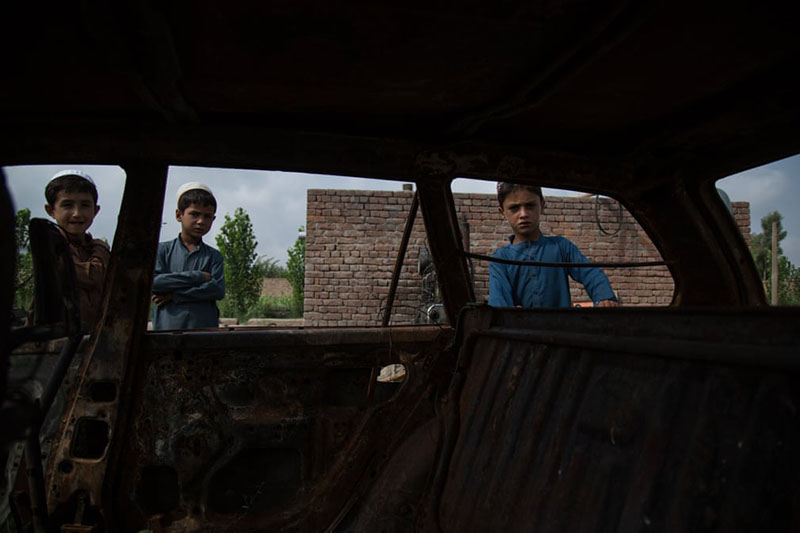
Boys peek through the windows of a burned-out car in Bacha Khan, in Khost province. The village was left devastated after the morning military raid which saw the car go up in flames. (Photo: Stefanie Glinski/Guardian)

Assad, aged six, from Khost province: ‘I get scared when I hear the helicopters come closer at night. They are part of the Afghan National Army and sometimes they strike the village. I learned how to use a gun so I can protect myself. ‘I don’t know how to read or write, but I hope I can go to school next year. There are many robbers here, that’s why we have dogs and guns to be safe. But there’s nothing we can do about the drones and helicopters. I’m afraid every night.’ (Photo: Stefanie Glinski/Guardian)

Razia, 16, from Helmand province, is recovering from blast injuries in hospital. ‘We were right in the middle of it all when fighting broke out between the Taliban and the government. The rockets were flying and one of them hit our house. I remember the pain and feeling my legs burn away, but that’s when I lost consciousness. Two of my brothers and my sister were killed. I’m now recovering in hospital, but I’m afraid to go home. Fighting breaks out so often here, it’s not safe.’ (Photo: Stefanie Glinski/Guardian)
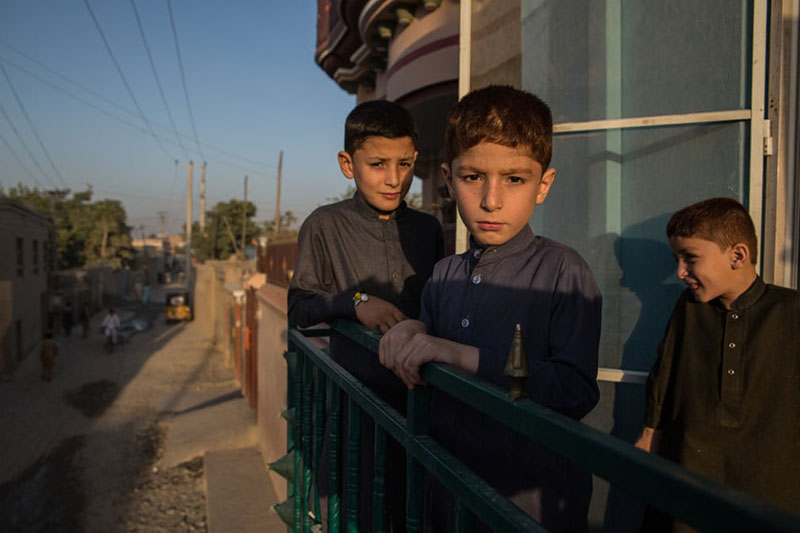
Mujib, eight (front) with Siauddin, 10 (back) and Najmuddin, seven, stand on the balcony of their rented house in Kunduz in northern Afghanistan. Siauddin says: ‘My father is Kunduz’s police commander and he fights the Taliban, that’s why I am afraid of them. I’m scared for my father. I worry that he will be injured in fighting. Sometimes I hear about my father’s friends being killed. One of them – Abdul – was like an uncle to me. We played and joked around. Now he’s dead and I miss him. If peace doesn’t come, I’ll become a commander like my father and fight.’ (Photo: Stefanie Glinski/Guardian)
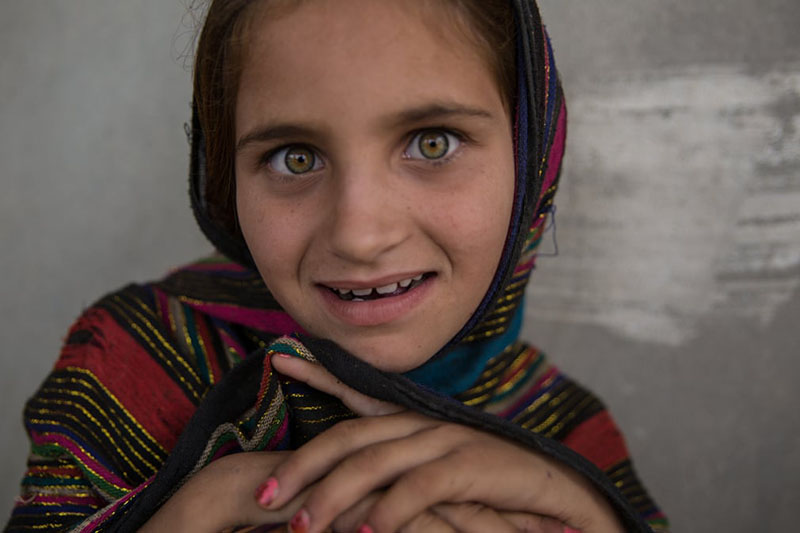
Mariam, eight, is from Khost province. ‘The soldiers came early in the morning. They broke into our house and climbed on the roof. They yelled at us, telling us to go outside. I held my grandfather’s hand. We walked far away from the house and the soldiers followed us with their guns, then told us to sit down and watch. I watched when they blew up the house. It was loud and I cried. My family now lives in a rented house. I miss our village, but I don’t think we will go back soon. We have no place to go anymore.’ (Photo: Stefanie Glinski/Guardian)
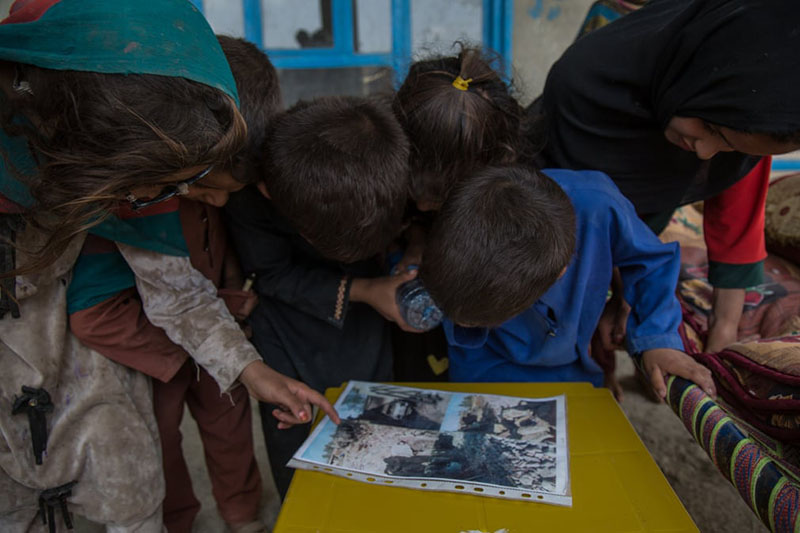
Children look over pictures of their destroyed house in Noorai village, a Taliban stronghold in Khost province. The family – including Mariam – now live in a rental house in Khost City. (Photo: Stefanie Glinski/Guardian)
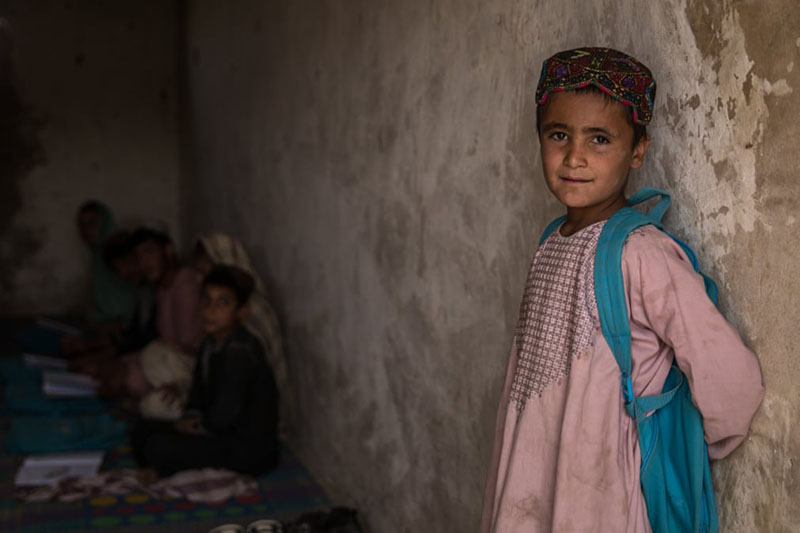
Mohammad, aged seven, Kandahar province. ‘There’s an army checkpoint inside my school. My teacher said that we students have one building, but that soldiers have taken over several rooms because they didn’t know where else to go. I sit on the floor during class and when I look outside, I see the soldiers and their cars on the other side. They have guns and they tell us they are keeping our school safe. Sometimes they joke with us. My father says it’s good to have the army here, because it makes our school safer. We’re protected if there’s an attack.’ (Photo: Stefanie Glinski/Guardian)
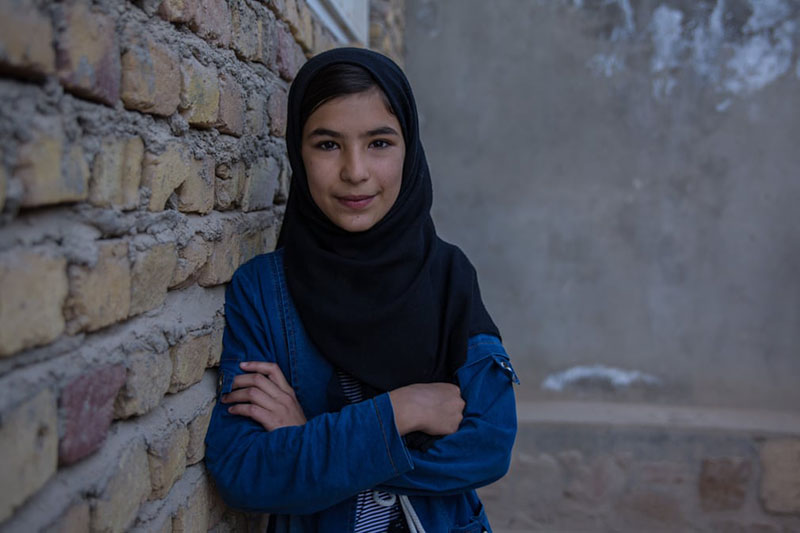
Eidnaz, 12, Badghis province. ‘I want to be a lawyer and work in the government later, because I want to change the situation here in Badghis,’ she says. ‘This year, there’s been so much fighting. Many people were killed – both the Taliban and government soldiers, but some of them were innocent. At night, I often hear the planes fly over my house. I know that they will not strike here, but I wonder where they are going and who will die. Many people have died here in Badghis because of the war.’ (Photo: Stefanie Glinski/Guardian)
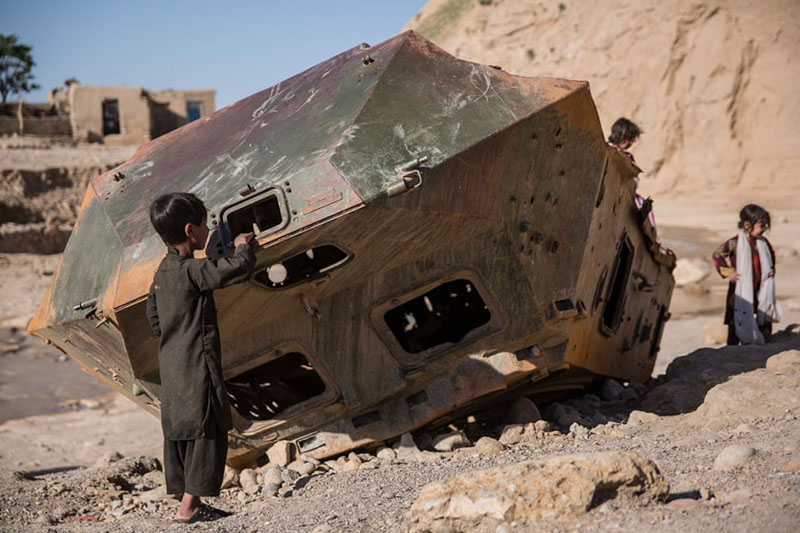
With ongoing fighting in Badghis, hundreds of families have left their villages to find safety in the provincial capital Qala-e-Naw. (Photo: Stefanie Glinski/Guardian)

Hadia, eight, sits on the roof of her new house in Khost City. ‘I woke up from the explosion. Soldiers ran into our house and entered the room I was sleeping in. My grandparents were with me and I tried to hide behind them. I was scared the whole time. When they left, I couldn’t sleep anymore. In the morning, we found three of my uncles killed. The soldiers had been using a gun that doesn’t make a sound, so at first, we didn’t know they had shot people. After we buried my uncles, we moved to the city. My father says it is not safe to live in the village anymore.’ (Photo: Stefanie Glinski/Guardian)
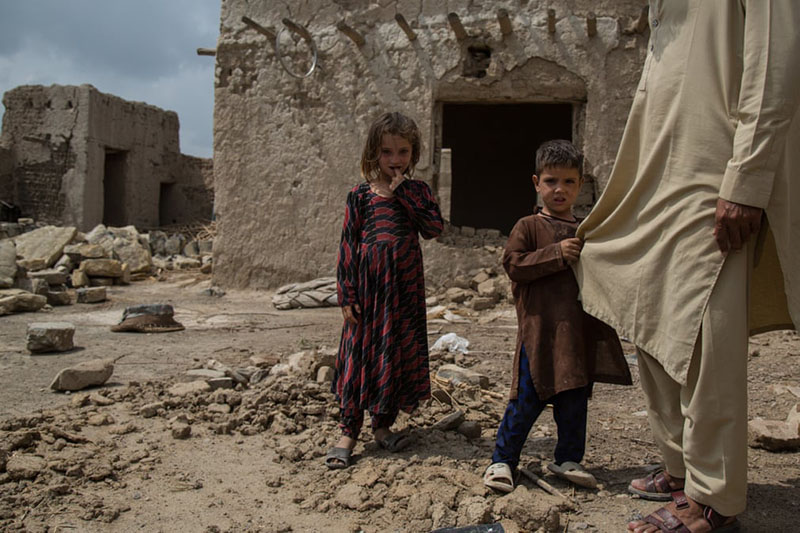
Badshah Dullah, 40, is raising his family in the ruins of his family’s house, destroyed 15 years ago in a US airstrike. The family was never able to come up with the funds to rebuild. ‘This is all my children know,’ he says. ‘The war isn’t over yet.’ (Photo: Stefanie Glinski/Guardian)

In Qala-e-Naw children live in large camps; most of them are unable to return home. (Photo: Stefanie Glinski/Guardian)



